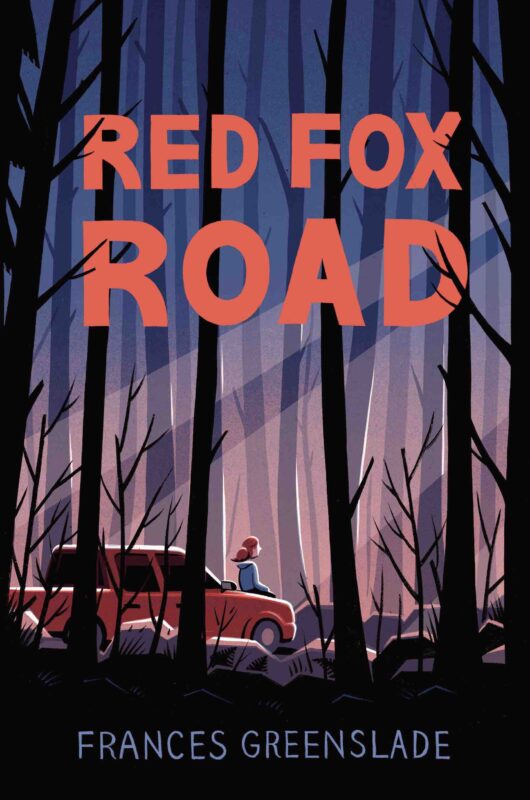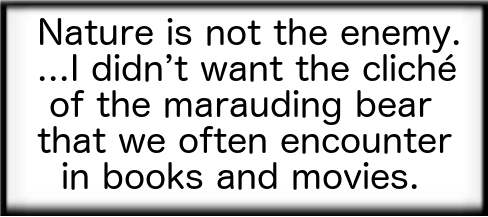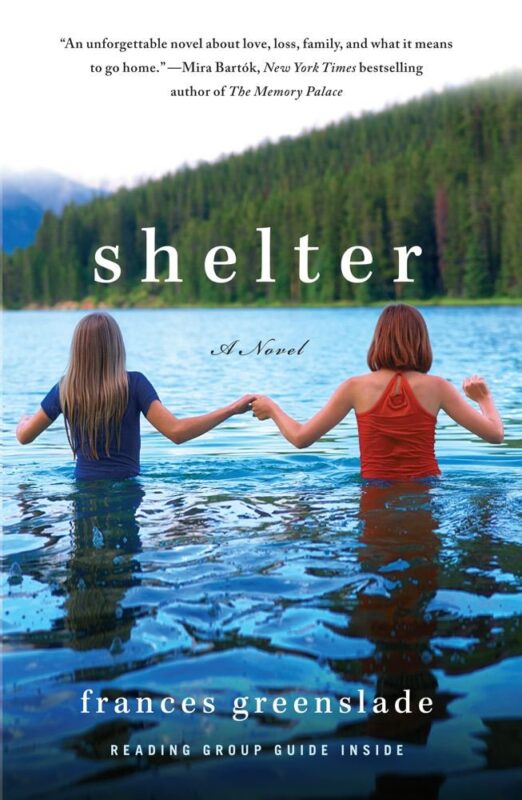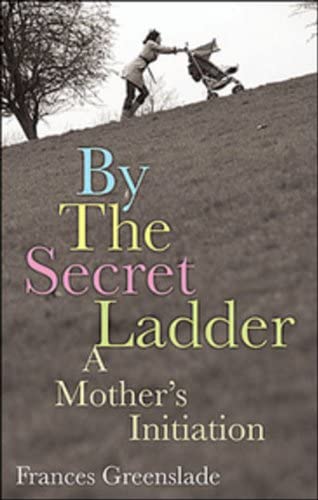
I love survival stories and found Frances Greenslade‘s Red Fox Road so compelling, I devoured it in two sittings. From her home in cozy Canada, Frances teaches English and writes mostly for adults, but penned this page-turner for young readers, out in 2020 from Puffin-Canada. It’s a great story, and Frances is here with me today for an interview!
But before we talk about her writing process, be sure to sign up for the giveaway. Hop to the end of this post to enter, then come back and read the interview. The deadline to sign up is Tuesday, April 20, at 11:59 PM.
A. B. Westrick: Frances, welcome to my blog!
Frances Greenslade: Thank you for having me, Anne.
ABW: Let’s start with your shift from writing for adults to writing for young readers. You’ve published two memoirs and a novel for adults. Why the shift, and what (if anything) did you find yourself doing differently, when your focus went from adult readers to kids?
FG: Writing for a book for younger readers wasn’t so much a choice. When I sat down to write this book, I wrote the first sentence, “Mom wasn’t speaking to Dad, but Dad hadn’t noticed,” and I knew this narrator was 12 or 13 years old. The story came to me that way and I followed it.
But as I realized I’d be telling the whole thing in this younger narrator’s point of view, I wanted to find a way to get closer to her, so I named her Francie, after myself. I felt like I was writing to the younger me, the 13-year-old girl who daydreamed stories about being heroic. I meant to change the name later, but by the time I’d written a couple of chapters, she was Francie and I couldn’t change it.
ABW: Oh, that’s great. Writing to one’s younger self is an excellent prompt, and you went with it through a whole novel. Good stuff.
Now, in the Acknowledgements you recount a memory of having gotten lost on a back road, and how your own experience informed this story. So my question is: how much of Red Fox Road is autobiographical? You gave your protagonist your name, so is she… you?

FG: The story isn’t autobiographical, although it draws on feelings I had when I was 13 (and sometimes still have.) Francie is more the girl I wanted to be. She does things I wanted to be able to do. She’s braver than I was. That’s part of the magic of writing for me—the ability to re-write my own stories.
I think that each of us lives by a narrative, whether we recognize it or not. It’s the story we tell in our heads to explain ourselves. To take some control of that seems important to me.
ABW: Well said. I agree. The idea of taking control and explaining ourselves—this is part of the joy of writing fiction.
Okay, next tell me about researching survival skills. I think all readers—young and old—will enjoy learning a few tips while reading your book, such as the value of marking a trail with brightly colored scraps. (We all know how Hansel & Gretel’s breadcrumbs failed them.) How much time did you spend book-learning vs. time spent in the woods? Have you gone camping and slept under the stars? Did you practice building campfires with wet sticks?
FG: I try to spend as much time in the woods as I can. Like Francie, it’s where I’m most at home. When I can make a fire with a single match, I feel a sense of competence. Francie experiences that too. Bush survival in my life and in Red Fox Road is a metaphor for day-to-day survival.
ABW: Nice. And when it comes to survival, Francie often has to talk herself down from panic to calm. To do so, she recalls wisdom from a particular teacher. For example, she remembers,
Ms. Fineday would say to pay attention to the woodpecker. It wasn’t afraid. The woods were its home and everything it needed was there (pg. 16).
In another memory, Ms. Fineday stayed calm in the presence of a bear, telling the children,
It’s a myth that a black bear with a cub is dangerous… A grizzly, yes. But black bear cubs can climb trees, so the [mum doesn’t] worry too much… she’ll just send her cub up a tree (pg. 134).
I love these bits of wisdom! And what I’m wondering is whether you came across survival skills you chose NOT to include in the story. If so, would you give us an example of something in the good-to-know category that you decided not to include? And why not?

FG: It was important to me to give a nuanced portrayal of Francie’s encounters with the wilderness. She is understandably afraid, but I also wanted to show a sense of respect, of attempting to deal with her fears in a reasonable way. Nature is not the enemy. To her, it’s a friend. I think that building that kind of relationship is especially important now, in this climate crisis we’re in. So I didn’t want the cliché of the marauding bear that we often encounter in books and movies.
The bear story is based on an encounter my hiking buddies and I had on a trail on Vancouver Island—a bear trying to get into our packs only about ten feet away from our tent in the middle of the night. At first, we were terrified, but we also realized later that it was our fault. We had seen signs that told us that we shouldn’t camp there, but we ignored them. It was near the bear’s berry patch and we were in her way. We’d interrupted her routine.

The conservation officer told us later that the bears in that area had to adapt by doing their foraging at night to avoid hikers. The details about black bears with cubs I learned afterwards through my reading. It made me understand bears better and made me feel less afraid.
Most of the wilderness knowledge in the book is like that, a combination of my own experience, knowledge from people I’ve met, and reading.
Something I learned through reading and didn’t directly mention in the book is that usually emergency survival situations happen because of a series of small mistakes—not just one big one. So, for example, you don’t tell anyone where you’re going, and you don’t have a map, and maybe you don’t bring warm enough clothes with you. One of those things alone might not cause a big problem, but all together they can add up to a dangerous situation.
ABW: Right. And in the story, you let lots of little mistakes build to a serious situation. I couldn’t stop turning pages.
Well, let’s shift gears and talk a bit about some of your figurative language. It seems to arise organically from the setting, and I love that it does. For example, Francie says,
I wish I could have stopped [my mind]… but it was like an ant on its trail back to the nest—it would go over anything to get there. My mind scurried back to my room… (pg. 123).
Perfect. Just perfect! Do images like this one come to you easily while you write, or do you go in search of language like this to enrich your scenes? Tell me a bit about your writing process.
FG: In Red Fox Road, I wanted to show Francie really trying to pay attention to what her mind is doing—how it can help or hinder her. It’s something I’m always working on in my own life. I have an active imagination, but it can get carried away, too.
When I write, I try to immerse myself in the setting, the world of the book. When I do, the images, metaphors, similes, etc. are all of that world. I write longhand in a lined notebook. It’s the way I wrote my very first novel when I was about twelve or thirteen (a novel suspiciously like a Nancy Drew novel!).
ABW: Haha. I love that. I have some early Nancy Drew-like stories, too! But back to writing longhand…

FG: Yes. I call this slow writing, and it’s got a couple of advantages. It’s portable, so I can take a notebook and a pen into the woods or down to a lake and watch the wind on the water, smell baking pine needles, hear the ruckus of birds. I try to include all of that in my story so it’s a physical experience for the reader. Also, slow writing allows me to pay close attention to the pull of each sentence. If a sentence doesn’t take me somewhere, I cross it out and try again. I want the imagery to take me deeper into the world of the story.
ABW: Love it. Now, in addition to being a survival story, Red Fox Road is about grief and mental illness. Also, the novel includes a number of secondary characters, most of whom appear only in flashbacks (memories). Tell me about your process in developing the secondary characters and plot lines. Were they part of this story from the get-go, or did you layer them into the story later, during the revision process? How much revision did you take the story through with your critique group, before an editor bought it? Once picked up by Puffin, how much revision did your editor want? How do you approach the revision process?
FG: I could tell from the start that Francie had experienced some kind of loss. I felt a sadness in her voice, in the way she looked at the world. And I think I knew from the start it was about her sister. My previous novel, Shelter, was also about sisters. (I have four sisters, so it’s a subject close to my heart.) But I did have to figure out what had happened, and I made them twins, I think because her loss felt so visceral to me—like she’d lost a piece of herself. In some ways I think everyone’s first loss probably feels that way. It makes you question who you are and what you care about. I wanted to capture that.
ABW: Oh, you’re taking me back to my very first loss, and I think you’re exactly right—how it makes you question who you are.
FG: Yes, it really does.
And about revision—I’m cautious about who I give my first drafts to. Having someone else read a draft too early can totally destroy my momentum. But when I’m sure it’s as ready as I can get it, I get feedback from my spouse. He cares about story first and foremost, so he won’t let me get away with anything that doesn’t advance the story.
I then work with my long-time agent on some revisions before sending it to the publisher, in this case Penguin Random House, who published my previous books. I’m always open to editing suggestions. I feel like a good editor understands the story, and most suggestions are to help the reader experience the story as I envisioned it in my head. But for this book, there wasn’t a lot of revision. The story unfolded slowly and surely. (That’s certainly not always the case for me!)
ABW: You’re fortunate to have such a helpful spouse and agent!
Finally, do you have any advice for aspiring novelists? And what are you working on now? Will your next book be for adults or young readers?
FG: My advice is to read as widely and as much as you can, and to write. That sounds obvious, but often writers come to me to talk about a book they plan to write and to ask how they should get it published. I understand the eagerness to get published, but I think the focus should be on the joy of writing it.
Just try to have fun with it. Don’t think too much about publishing at the first draft stage, because it can be paralyzing.
I also don’t believe in a lot of advance plotting, for the same reason. I heard Cormac McCarthy in an interview say that planning is “death to a writer.” I tend to agree. To me, a lot of the fun of writing is the surprise about where the story will take you.
I’m now working on a sequel to Red Fox Road. Francie has taken up residence in my imagination. I’m not quite ready to let her go.
ABW: I look forward to reading it! Thank you so much, Frances, for writing such a great book, and for doing this interview.
FG: Thanks for inviting me!
Readers who want to know more about Frances and her books can find her at Facebook, Instagram, and her website. If you visit, be sure to say so in the Rafflecopter below. Each entry earns you a chance to win a copy of Red Fox Road. The deadline to enter is Tuesday, April 20, 2021, at 11:59 PM. Multiple entries on multiple days are welcome. On April 21, I’ll ask the Rafflecopter to choose a random winner. Good luck!
a Rafflecopter giveaway
Red Fox Road sounds wonderful! I love what Frances said about the “pull’ of a sentence and the joy of writing. I am a slow writer also. Well, I take that back. I am a slow reviser. I might race through a draft but take my time on the revision to savor each sentence. So I loved this interview and the fact that Frances is so experienced in the woods.
I’m a slow writer, too. And I love revision. Love the whole process, really.
And you mentioned experience in the woods… Yes! Today on Twitter, a friend said one of the things she liked about this interview with Frances was what she learned about bears. Me, too!